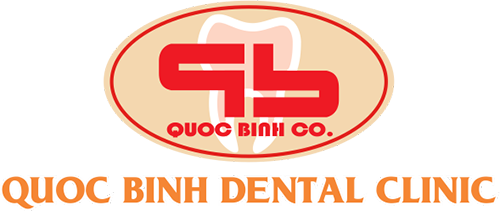Milk teeth are the first teeth of a baby. They last from about 6 months to 12 years and are replaced by permanent teeth. Thus, each of us has two systems of teeth, a milk teeth system and a permanent teeth system.
Some information about permanent teeth and milk teeth
The first permanent teeth grow when the child are 6 years old, and this is a first molars. This molars is particularly important, because its responsibility to hold the position of the other permanent teeth growth on right place.
We call this tooth is the first permanent molars, or first molars, or 6-year molars. And teeth No.6 are mistakenly thought to be milk teeth so parents are less interested, so that they are very susceptible to tooth decay.
When the first permanent tooth starts to grow, the milk teeth begin to shake and fall off.
The procedure takes place between 6 to 12 years. At this stage, the baby will have permanent teeth and milk teeth, so will be referred to combination teeth stage.
Milk teeth are smaller than permanent teeth, and the color is also whiter.
In the mixed teeth phase, we often see some unbalanced points in this stage such as:
- The baby’s teeth look sparse when the child are 6 years old.
- The size of the front teeth is too large for the child’s face.
- The permanent color is too dark for the milk teeth.
If you don’t follow the replacement and control of the teeth, it’s very likely that the teeth will grow deviation.
Therefore, to have beautiful permanent teeth, milk teeth also contribute important. Should be taken care of them when the first milk teeth grow.
How do the milk teeth grow?
The first baby’s tooth will grow when baby was 6 months old, usually the incisors lower teeth
The milk teeth system consists of 20 units.
The time for teething may vary slightly depending on the nutritional status and oral health of the baby.

@With Lower Jaw:
| Age for milk teeth | Age for replacement | |
| Central Incisors | 6 months | 6 – 7 years |
| Lateral Incisors | 7 months | 6 – 7 years |
| Canines (Cuspids) | 12 – 16 months | 9 – 10 years |
| First molars | 16 – 20 months | 11 years |
| Second molars | 20 – 30 months | 10 – 11 years |
@With Upper Jaw:
| Age for milk teeth | Age for replacement | |
| Central Incisors | 7 months | 7 – 8 years |
| Lateral Incisors | 8 months | 8 – 9 years |
| Canines (Cuspids) | 12 – 16 months | 9 – 10 years |
| First molars | 16 – 20 months | 10 years |
| Second molars | 20 – 30 months | 10 – 11 years |
Note: The two lower incisors teeth usually grow first. Then the other teeth will grow over the reference time as above. Thus, around 2½ to 3 years of age, the child has a full set of teeth.
What role does milk teeth play?
In the old sense, parents often think that milk teeth doesn’t matter, because it will be replaced with permanent teeth. However, in fact, the milk teeth have many important functions.
- Milk teeth help children’s chewing function in the early years.
- Each tooth is replaced by a permanent tooth, the milk teeth are considered to be the best keepers for permanent teeth position.
- Baby teeth stimulate the growth of the jaw. When milk teeth are used to eat chewing, it help the cranial system develop normal.
- Pronunciation function: Helps the baby to pronounce syllables requiring coordination between teeth, tongue and lips. Example: “th” and “ph” sounds.
- And finally aesthetic guarantee.
How to care for milk teeth?
@ Dental hygiene:
It should be done from newborn to milk teething. At this stage, parents may use finger gauze, absorb a little physiological saline and rub the tongue, face of gums.
When your baby has more teeth, start using a small toothbrush, and that is very soft. You should buy beautiful and fun color brushes. Whenever you brush their teeth, toothpaste should be as small as a pea.
Note: Use sweet toothpaste, mild fragrance for children. Choose a clear and safe toothpaste for baby, because during brushing, baby can swallow it.
At this stage, children often can’t understand what are cavities, or bacteria. Therefore, parents should use easy words such as “catch the worm”, “chase the worm” to “tame” baby brushing easier…
@ Guide how to brush baby teeth properly
The easiest way is to let your baby open his mouth or bite his jaw. Next, move the brush from the upper jaw down to the lower jaw.
Face of chewing: Guide the baby to brush back and forth about 4-5 times for a tooth.
Note: It is necessary to brush the teeth immediately after each meal because of the strongest tooth decay in about 30 minutes after eating. However, for high acid foods such as oranges and lemons, don’t brush the teeth immediately because the enamel is weakened by acid. If you brush your teeth immediately will wear enamel.
Make children aware of what foods are good, which foods are not good for teeth.
- Candy, sweet cake, sugar are not good for teeth. Need to brush or rinse teeth when using these foods.
- It is best to use a straws when have soft drink to restrict sugar to the enamel.
- Limit snacking, if you eat sweet food, eat in the main meal to combine brushing after meals.
Avoid night feeding and bottle feeding.
- At night, when the baby sleeps, the amount of saliva will decrease significantly, so the night feeding will lead to more tooth decay.
- Bottle feeding also adversely affects the baby. Studies show the difference between bottle-feeding and breast-feeding. In order to suck breast milk, children must move the lower jaw, facial muscles and jaw muscles should function better.
- In addition, bottle feeding causes the upper teeth of the jaw to become more protruding and less development.
Make your child familiar with visiting dentists regularly.
- The first impression of a child is very important. So when we first bring the baby to the dental clinic, we have to make children feel very comfortable and fun.
- Treatment should be sequential, from simple to complex for children to get used to.
- Parents should also note that milk teeth enamel is softer than permanent teeth; This leads a very rapid development of infant milk tooth decay. Therefore, it is best to have a regular check-up every 3 months.
Through the information shared on, parents probably understand the problem of milk teeth care is very important.
Quoc Binh Dental Clinic is currently implementing a free dental checkup and monitoring program for children. If having child, you can contact the clinic directly for the best support.
QUOC BINH DENTAL CLINIC
Hotline 0914 83 99 66
19 Pham Hong Thai Str., Ward 7, Vung Tau City.
28 Le Loi Str., Ward 4, Vung Tau City.
Page online: https://www.facebook.com/nhakhoathammyvungtau/

